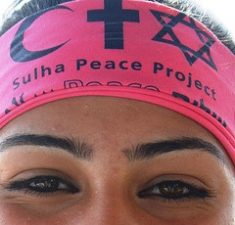
Islamic scholars decree that Muslims athletes participating in the Olympic games are exempted from fasting.
Throughout Ramadan, Muslims must refrain from eating or drinking from dawn to sundown. The commitment demand both mental and physical stamina. Fasting challenges sedentary workers in air conditioned offices. Imagine the toll on world-class athletes who, depending on their particular sport, can lose 15 percent of their body weight sweating through practice and qualifying events.
With the Olympics falling during this Islamic holy month of Ramadan, religious leaders in Egypt, Algeria and the United Arab Emirates determined that their London-bound athletes were relieved from fasting. They cited the same reason for the exemption: undertaking extensive travel with an intention to return home.
Last week Ali al-Hakmi, a member of Saudi’s Council of Senior Islamic Scholars, issued a fatwa stating that Saudi Arabian athletes participating in the Olympics can be exempted from fasting, again citing travel. Hakmi told Saudi newspaper Okaz that, as the athletes are traveling with the intention of returning, they and their entourage may defer their Ramadan fasting, even if their stay “reaches 15 or 19 days.”
There are 17 Saudi athletes participating in athletics, equestrianism and weight lifting.
In his fatwa granting the Egyptian Olympic delegation the right to postpone fasting, Egypt’s Grand Mufti Ali Gomaa included a verse from the Quran, “[Fasting for] a limited number of days. So whoever among you is ill or on a journey [during them] — then an equal number of days [are to be made up].”
When asked if Egyptian Olympians must respect Ramadan fasting, the Fatwa Council of Egypt’s dominant religious authority, El Azhar, provided a recorded response, citing an interpretation of Islamic teaching, “According to Hanafi scholars, it’s permissible to break fasting while traveling if the duration will not exceed 15 days. … If a person was to stay in his country of destination more than the mentioned duration, he must fast as long as he is able and it won’t impose difficulty on him.”
Said plainly, Egypt’s athletes may eat and drink during the games.
Dubai’s Grand Mufti Sheikh Ahmed Al-Haddad declared that athletes can fast for the same number of the days they skipped, after the Olympics end, and the Algerian Fatwa Committee ruled that as the athletes are traveling in the service of their country, they can skip fasting provided that they resume after the games end. MENA reports that the Moroccan Sports Ministry is awaiting a similar fatwa from the country’s Islamic scholars.
Four common reasons for not fasting:
- Sickness (where fasting will worsen ill health or slow recovery)
- Travel (on long journeys requiring shortened prayers, and where the traveler doesn’t intend to settle in the place to which he travels)
- Pregnancy and breastfeeding (when fasting would jeopardize good health)
- Senility and old age
A spiritual dilemma: some will still fast.
Imam Johari Abdul-Malik, from the Dar Al-Hijrah Islamic Center in Virginia, explained to National Public Radio (NPR), “Do I starve my body to feed my soul? Or in this month, do I starve my soul to feed my body, and my appetite for Olympic gold?” Abdul-Malik says fasting should bring blessings, not hardship, such as denying a Muslim athlete’s chance of winning an Olympic medal.
Going without food and water in the lead-up to an event could forfeit a competitor’s chances for success, and cause serious physical harm. But despite the high-level reprieve, some Muslim athletes will choose to fast.
Ron Maughan, chairman of the nutrition working group for the International Olympic Committee, told NPR it’s impossible to predict the effects of fasting on any particular athlete.
“When you first talk to people about Ramadan fasting, and sports performance, the automatic assumption is that every sports performance is going to suffer,” Maughan says. “But then if you think about some specific events, it soon becomes obvious that may not be the case.”
Maughan says competitors in strength and power events like weightlifting, or in skill competitions such as archery, might not be hampered. Time of day is also a factor. Sprinters racing at 10 AM might not feel washed out. But others in endurance sports, or who compete in multiple events, fasting will take a considerable toll.
This is a story that deserves follow-up: who fasted, who did not, and – from the athlete’s point of view – what were the physical and spiritual repercussions .



